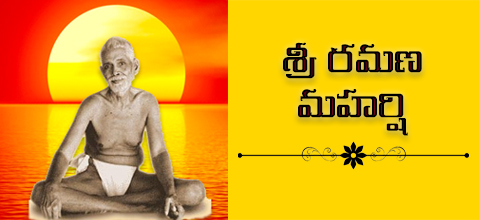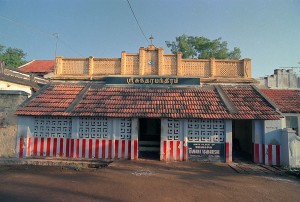 |
| Sri Ramana Maharshi |
Ramana Maharshi was an Indian Hindu sage and jivanmukta. He was born Venkataraman Iyer, but is mostly known by the name Bhagavan Sri Ramana Maharshi. He was born in Tiruchuli, Tamil Nadu, India. |
Ramana Maharshi Quotes
Time is only an idea. There is only the Reality. Whatever you think it is, it looks like that. If you call it time, it is time. If you call it existence, it is existence, and so on. After calling it time, you divide it into days and nights, months, years, hours, minutes, etc. Time is immaterial for the Path of Knowledge.
Even the structure of the atom has been found by the mind. Therefore the mind is subtler than the atom. That which is behind the mind, namely the individual soul, is subtler than the mind.
If there is anything besides the Self there is reason to fear? Who sees the second? First, the ego arises and sees objects as external. If the ego does not rise, the Self alone exists and there is no second.
Concentration of the mind is in a way common to both Knowledge and Yoga. Yoga aims at union of the individual with the universal, the Reality. This Reality cannot be new. It must exist even now, and it does exist.
Early Life
Arudra Darshanam, a festival that commemorates the manifestation of Lord Siva as Nataraja, the Lord of Cosmic Dance, was being celebrated with great ardor in the Bhuminatha temple in Tiruchuzhi, South India, on December 29, 1879. |
Death Experience
The turning point in Venkataraman’s life came spontaneously in mid-July 1896. One afternoon, the youth for no apparent reason was overwhelmed by a sudden, violent fear of death. Years later, he narrated this experience as follows: |
 The decorated icon of Lord Siva was ceremoniously carried in procession through the streets during the day and late into the night. Just as the Deity re-entered the temple past midnight on December 30th at 1:00AM, the first cry of a baby boy was heard in a house adjacent to the temple. The fortunate parents were Sundaram Iyer and his wife Alagammal. The newborn child received the name Venkataraman and was later known as Bhagavan Sri Ramana Maharshi. As the child was being born, a lady with poor eye-sight exclaimed that the new born was enveloped in light.
The decorated icon of Lord Siva was ceremoniously carried in procession through the streets during the day and late into the night. Just as the Deity re-entered the temple past midnight on December 30th at 1:00AM, the first cry of a baby boy was heard in a house adjacent to the temple. The fortunate parents were Sundaram Iyer and his wife Alagammal. The newborn child received the name Venkataraman and was later known as Bhagavan Sri Ramana Maharshi. As the child was being born, a lady with poor eye-sight exclaimed that the new born was enveloped in light.
